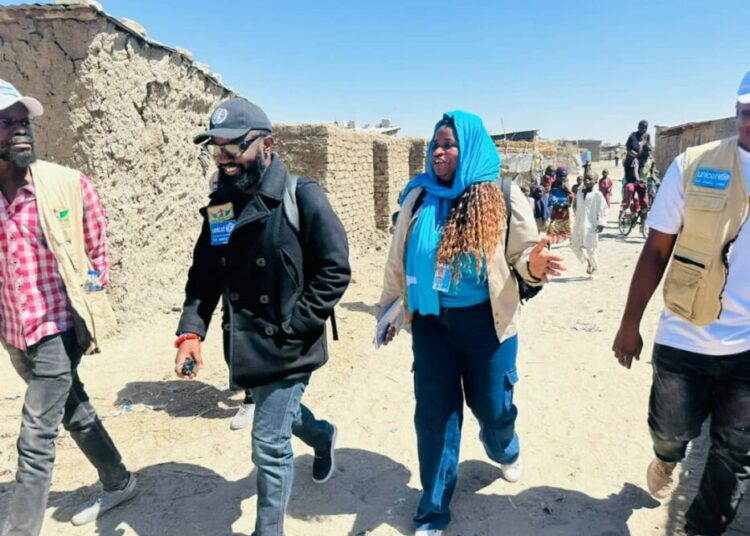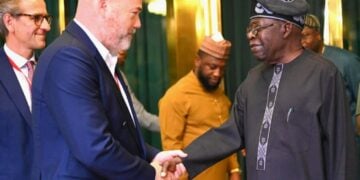President Bola Tinubu has been advised to deploy alternative means to combat the growing insecurity and violence across the country, especially in the North-East and North-West regions.
Country Director of GOALPrime Organisation Nigeria, Professor Christopher Chinedumuije, in an open letter to President Tinubu, stated that, “for years, successive governments have responded by increasing defence budgets, purchasing weapons, and deploying troops in the hope of crushing non-state actors. Yet insecurity has only worsened. The paradox is clear: the more we spend on defence, the stronger the conflict becomes.”
Chinedumuije, who is also an expert in Disaster Management and Humanitarian Studies, added that, “Guns cannot end insecurity in a country where the majority are poor, where every minimum-wage earner lives in abject poverty, and where Nigeria holds the worrisome title of the global capital of out-of-school children.
“Hungry men, uneducated youths, and displaced families are fertile recruits for terrorists, bandits, and criminals. Guns can silence a battlefield, but they cannot silence the desperation that poverty fuels.”
According to him, “Since 2009, more than 35,000 Nigerians have been killed in the Northeast alone and at least 10,217 more were killed between 2023 and mid-2025 in states such as Benue, Edo, Katsina, Kebbi, Plateau, Sokoto, and Zamfara with Benue suffering the heaviest toll.
“Today, more than 7.8 million Nigerians—mostly women and children—require urgent humanitarian assistance due to insecurity, and in Borno State alone, over 2.3 million people remain displaced after fifteen years of conflict.
“More than 20 million children across the country are out of school, the highest figure in the world, and every one of them represents a potential recruit for non-state armed groups.”
He stated that, “Nigeria and Nigerians have endured the worst forms of insecurity in modern history. From banditry in the Northwest to Boko Haram terrorism in the Northeast, from farmers–herders conflicts in the North Central to kidnappings, violent crimes, and separatist agitations across the South, our nation bleeds daily. Entire communities have been displaced, livelihoods destroyed, and millions of children denied education.
“Insecurity is no longer a regional challenge; it is a national crisis threatening the very survival of our Republic. The economic cost is devastating. Nigeria’s economy has already lost more than US$100 billion due to conflict and insecurity, and projected losses could rise to $200 billion by 2030 if the trend continues. In agrarian states like Benue, every 1% increase in insecurity reduces crop output by 0.211% and livestock production by 0.311%, undermining food security and driving inflation.
“Insecurity has also forced businesses to close markets, cut operating hours, and relocate. Foreign investors have withdrawn billions of dollars due to instability, and the nation loses jobs, revenue, and competitiveness as youth unemployment rises.
“Food insecurity is worsening; more than 31 million Nigerians face hunger, the highest number globally. In the Northeast, aid cuts have already shut down 150 nutrition centers, placing 600,000 children at risk of death from malnutrition.
“In Katsina State alone, at least 652 children died of malnutrition in the first half of 2025, more than double the previous year.
“Mr. President, the time has come for your government to prioritise rightly and deploy the right strategies: we cannot shoot our way into peace. National security must be redefined. It is time to reorder priorities so that defence budgets are matched or surpassed by investments in poverty alleviation, education, healthcare, agriculture, and job creation.
“Poverty reduction must be recognized as national security, with the Ministry of Humanitarian Affairs and Poverty Reduction placed at the very heart of our security architecture. Local governments must be strengthened and adequately funded, because insecurity is local and only empowered communities can provide lasting resilience.
“Above all, Nigeria must embrace the human security framework, where hunger, education, health, livelihoods, and justice are treated as inseparable from peace,” adding that”History will not remember how much was spent on weapons. It will remember whether you had the courage to fight poverty as the only sustainable pathway to peace. If the Renewed Hope Agenda is to be meaningful, it must translate into children back in school, families lifted out of poverty, and communities resilient enough to resist extremism and crime. Guns may win battles, but only poverty reduction can win the war for Nigeria’s peace, stability, and future.”





